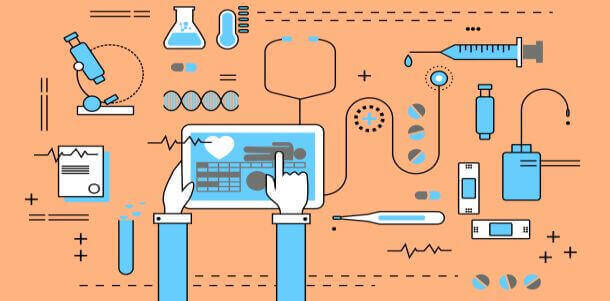

For all these, we must know about collective intelligence, big data, informatics capacities, corresponding terms of smart health, knowledge exchange knowledge, ecosystem, and situational awareness. Mix results can be obtained by demonstrating a direct impact on health outcomes. Health information technology is designed due to the solution of complex problems such as health disparities.

In today’s world, NIH and Big Data to Knowledge (BD2K) seek the position of data sciences in biomedical research. They are going to research how much accurate equipment is required for the new generation of biomedical data scientists. Leading centers are developing to handle this type of cases with large-scale data. The agencies are making efforts to collect increasingly data with increasing research productivity. This is the major challenge for the National Institutes of Healthcare (NIH) to lead the big data to knowledge representation.


This biomedical information is to create thinking, managing, and analyzing and the way they can transform into further scientific perception for enhancing patient care. Scientists are often struggling to collect data about the disease and on how data are being generated for the treatment of disease. In biomedicine, there are many ways to collect data from observation and experiments. The aim of the program was at designing a set of tools which can support an accurate, objective, and clinical decision-making process efficiently. Studies have explored an understandable experience which includes all challenges, risks, and comfort since the implementation of AI programmed with the help of big data in healthcare within a contagious disease setting. Medical doctors are skeptical about the help that artificial intelligence can deliver to them in their medical practices. Researchers are collecting data to make human care and diagnosis disease efficiently and operationally. Medical care and treatment are getting enhanced day by day. Along with this, it also touches some aspects of need to combine several pathological and clinical sources and quality of life data as well as the unprecedented and quantitative datasets of neuroscience. Big data analysis is entered in biomedical sciences the foremost source of big data has been discussed and explained, especially in oncology, cardiovascular disease, allergic diseases, clinical work, ear diseases, and so on. This field has led very needy and tremendous enhancement in every field of life, especially in healthcare. Super computers are analyzing big data using the algorithms of advanced deep learning machines, which has allowed the improvement of output in the field. It executes human brain tasks in most of the fields in all aspects of our daily life using big data applications. IntroductionĪI is a field of computer science, which is capable of copying human characteristics, capacity of learning, and storage of knowledge. This paper summarizes the recent promising applications of AI and big data in medical health and electronic health, which have potentially added value to diagnosis and patient care. In this paper, we have reviewed existing research relevant to eHealth and mHealth where various models are discussed which uses big data for the diagnosis and healthcare system. The Markov model is used to extract new approaches for leveraging cancer. In clinical work and imaging, cancer care is getting improved by knowing the tumor biology and helping in the implementation of precision medicine. For example, cardiovascular imaging has now accurate imaging combined with big data from the eHealth record and pathology to better characterize the disease and personalized therapy. Deep machine learning and AI approaches are commonly presented in many applications using big data, which consists of all relevant data about the medical health and diseases which a model can access at the time of execution or diagnosis of diseases. Especially, ICT has led to a very needy and tremendous improvement in the health sector which is commonly known as electronic health (eHealth) and medical health (mHealth). The enhancement in information and communications technology (ICT) has indisputably improved the quality of people’s lives around the globe. Artificial intelligence (AI) is making computer systems capable of executing human brain tasks in many fields in all aspects of daily life.


 0 kommentar(er)
0 kommentar(er)
